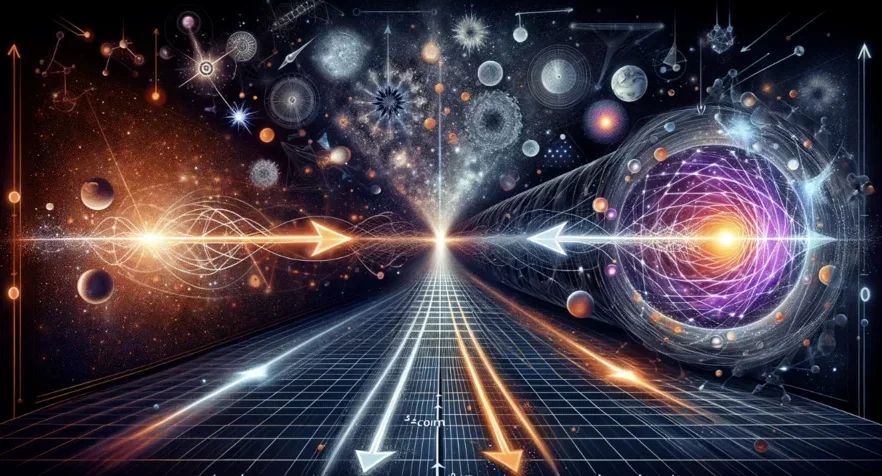Brighter Side of News
1M
4

Image Credit: Brighter Side of News
Time may be an illusion, new study finds
- Time may be an illusion stemming from quantum entanglement, according to a new study. This idea presents a fresh perspective on the longstanding issue physicists face: the inconsistency of time in our best theories of the universe, which hinders the quest for a unified “theory of everything.” Researchers propose that time is a result of quantum entanglement, the mysterious connection between particles separated by vast distances.
- In quantum mechanics, time is a fixed phenomenon, an unchanging flow from past to present. Conversely, Einstein’s theory of general relativity depicts time as intertwined with space, capable of warping and dilating under high speeds or strong gravitational fields. To address this, the researchers revisited the Page and Wootters mechanism, a theory proposed in 1983 suggesting that time emerges through quantum entanglement. In an unentangled system, time does not exist, and the universe appears frozen and unchanging.
- Applying this mechanism to two entangled but noninteracting theoretical quantum states—a vibrating harmonic oscillator and a set of tiny magnets acting as a clock—the researchers found their system aligned with the Schrödinger equation, which predicts the behavior of quantum objects. The equations simplified into those used in classical physics, suggesting that time’s flow is a consequence of entanglement even on large scales.
- Despite the intriguing possibilities, other physicists urge caution. They find the idea of the Page and Wootters mechanism fascinating but note that it has yet to produce testable results.
- Despite these doubts, building theories of time from quantum mechanics might still be a promising approach, provided they can be validated through experiments. This new perspective on time as an emergent property from quantum entanglement could open up new avenues for understanding the universe.
- However, it remains crucial to develop these theories in ways that can be experimentally tested to bridge the gap between quantum mechanics and general relativity.
Read Full Article
Like
For uninterrupted reading, download the app